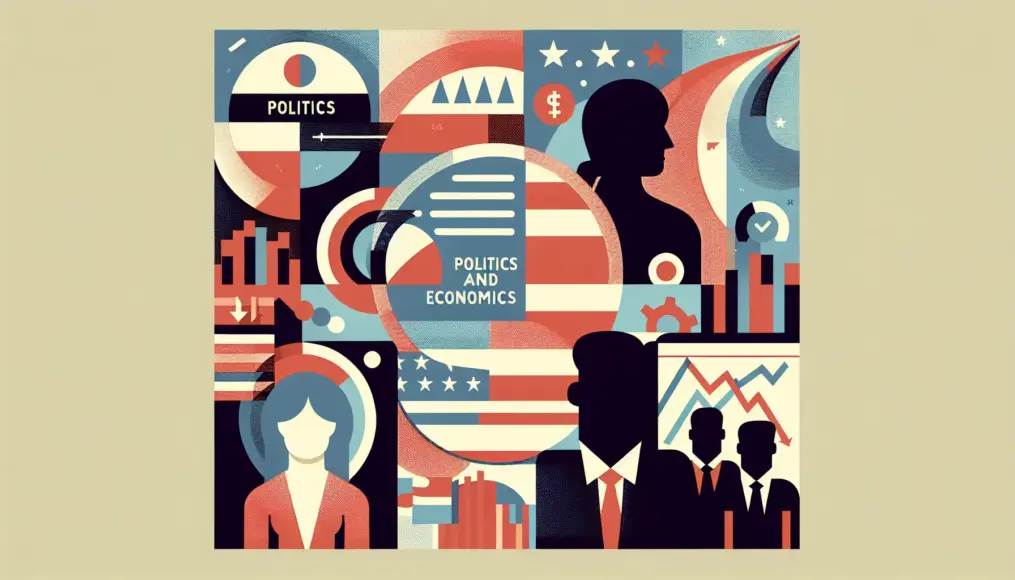The debate around increasing taxes on the wealthy is gaining momentum, but what does it mean for our everyday lives? Changes in tax policy could potentially shift the balance of society and alter the flow of the economy. Let’s take a closer look at how strengthening taxes on the affluent might impact us all.
In this article, we will explore the background and objectives of wealth taxation, examine the current state of policies, and discuss the implications for our daily lives. As tax reforms are underway, it’s crucial to understand the key points that we should all be aware of.
- The reasons behind calls for increased taxation on the wealthy
- The current reality of wealth tax policies
- The impact of tax hikes on our daily lives
The Background and Purpose of Strengthening Taxes on the Wealthy
Recently, there has been a growing focus on increasing taxes on the wealthy, driven by historical trends and social demands. Understanding how changes in the tax system affect our lives and the economy is essential. In this section, we’ll explore the evolution of tax policy and why there is a pressing need to strengthen taxes on the affluent today.
A Historical Perspective on Tax Evolution
Tax systems have evolved over time. In post-war Japan, as the country aimed for economic recovery, income and asset taxes were introduced, placing a certain burden on the wealthy. However, after the collapse of the bubble economy, tax policies gradually eased, resulting in a decline in taxes levied on the wealthy. In light of this history, there is now a renewed call for strengthening taxes on high earners.
Strengthening taxes on the wealthy is also crucial for maintaining social equity. When the tax system functions effectively, it facilitates income redistribution and enhances public services. Looking back at history, it’s clear that tax policy serves not just as a source of revenue, but as a vital tool for maintaining social balance.
- Evolution of Taxation from Post-War to Present
- The Context Behind the Demand for Taxation on the Wealthy
- The Importance of Tax Strengthening and Its Impact on Society
Reasons for the Call to Strengthen Taxes on the Wealthy
There are several reasons why strengthening taxes on the wealthy is necessary. Firstly, it is a response to the growing economic disparity. While the assets of the affluent continue to grow, the lives of average citizens are becoming increasingly difficult. To address this gap, it is essential to impose a fair tax burden on the wealthy.
Moreover, from a revenue perspective, strengthening taxes is critical. Increasing social security costs and the need to enhance public services require stable tax revenues. Strengthening taxes on the wealthy can be seen as a measure to support sustainable economic development. This is expected to lead society as a whole toward a better future.
- Strengthening Taxes to Address Economic Disparity
- The Need for Revenue Stability
- Securing Funding for Enhanced Public Services
Current State of Wealthy Taxation Policies
As calls for stronger taxation of the wealthy grow louder, it’s important to take a closer look at the specific tax measures currently in place. We also need to consider how these policies impact the affluent and how they respond. In this section, we’ll dive into the current state of taxation policies affecting the wealthy.
Existing Tax Measures
In Japan, several tax measures are currently applied to the wealthy. One prominent example is the progressive income tax system, which means that tax rates increase as income rises. Additionally, there are inheritance and gift taxes on assets, designed to ensure that the burden on the wealthy isn’t eased.
Recently, there have also been moves to introduce special taxes targeting the wealthy. This initiative aims to secure additional tax revenue. Taxation policies are crafted not only to maintain societal fairness but also to consider the sustainability of the economy as a whole.
- Overview of the Progressive Income Tax System
- The Role of Inheritance and Gift Taxes
- Trends in Newly Introduced Special Taxes
Impact and Reactions from the Wealthy
What kind of effects will these taxation policies have on the wealthy’s lives and asset management? Many affluent individuals are worried about the potential increase in their tax burdens, particularly regarding how it may affect asset transfer and investment strategies. As a result, some wealthy individuals are taking steps to mitigate their tax liabilities.
On the flip side, considering the broader societal benefits might prompt the wealthy to reassess their roles. A growing number of affluent individuals are becoming more aware of their social responsibilities and are increasingly engaging in charitable activities and community contributions. Strengthening taxes on the wealthy could serve as a catalyst for a shift in their mindset.

If you found this article interesting, you may also like this piece: “What Does Strengthening Taxation on the Wealthy Mean for Japan’s Future?.” This article delves into the background and social significance of enhanced taxation on the wealthy, exploring how current tax policies may influence Japan’s future.
- Concerns about Tax Burdens Faced by the Wealthy
- Moves to Implement Tax Strategies
- Increasing Awareness of Social Contributions
Insights: The Impact on Our Lives
As tax policies targeting the wealthy become more stringent, everyday citizens are experiencing a variety of impacts. By exploring the changes that are taking place, we can better understand how tax policies are intertwined with our lives. In this section, we will examine the specific changes brought about by increased taxation and explore their relationship with the lifestyles of the wealthy.
Changes Resulting from Increased Taxation
When taxes on the wealthy are raised, we can anticipate an increase in public revenue, which in turn is expected to enhance public services. For instance, this could mean more funding for education, healthcare, and welfare programs. As a result, there is potential for improvement in our living conditions.
Moreover, while higher taxes may lead the wealthy to curb their spending, there’s also the possibility that it could stimulate consumption across society as a whole. The businesses and services supported by the affluent could benefit a larger number of people, making it important to consider the positive aspects of increased taxation.
- Enhanced public services are anticipated
- Changes in the spending behavior of the wealthy may occur
- Consider the positive aspects of increased taxation
The Relationship Between Wealthy Lifestyles and Tax Policy
The increased taxation on the wealthy will also have implications for their lifestyles. As their tax burdens grow, they may need to reevaluate their asset management and investment strategies. This could lead to changes in their spending habits and overall lifestyle.
Additionally, as wealthy individuals reassess their roles, this may encourage greater contributions to their communities and involvement in social initiatives. In fact, an increasing number of affluent individuals are becoming more proactive in social contributions in response to their heightened tax responsibilities. These movements could positively influence us, the general public, as well.
- The lifestyles of the wealthy will be affected
- Reevaluation of asset management and investment strategies
- Promotion of social contribution activities is expected
Future Outlook on Tax Policy
As efforts to strengthen taxation on the wealthy continue, many are curious about how tax policy will evolve moving forward. Let’s explore the future of wealth taxation and the path toward a sustainable tax system, considering the impact on our lives and society as a whole. In this section, we’ll examine how upcoming tax policies might change and what these changes could mean for us all.
The Future of Wealth Taxation
Looking ahead, the future of wealth taxation is likely to demand a fairer and more sustainable tax system. As tax reform progresses, all eyes will be on how taxation on the wealthy evolves. In particular, measures addressing digital assets and international tax evasion will become increasingly significant.
Moreover, a strengthened tax system targeting the wealthy may invigorate the economy as a whole. If tax revenues increase, we can expect improvements in public services and enhanced social welfare. This, in turn, allows us, the general public, to reap the benefits.
- The need for fairness in wealth taxation
- The potential rise of taxes on digital assets
- Improved public services through increased tax revenue
Pathway to a Sustainable Tax System
To achieve a sustainable tax system, we need a comprehensive approach that goes beyond just taxing the wealthy. Elevating transparency in the tax system is crucial, as is ensuring that taxpayers feel their contributions are justified. By clarifying how tax dollars are spent, we can bolster taxpayer trust.
Additionally, strengthening connections with local communities and creating systems that channel tax revenue back into these areas is vital. When the wealthy contribute to their communities, it can stimulate local economies and promote sustainable growth. Each of us thinking critically about the tax system can help pave the way for future tax reforms.
- The necessity of increasing transparency in the tax system
- Strengthening community collaboration is key
- Individual awareness influences future tax reform
Conclusion
We’ve explored the implications of increased taxation on the wealthy and what it might mean for our lives and future tax policies. By considering the historical context, we gained insights into the current tax system, the reactions from affluent individuals, and the potential pathways to a sustainable tax framework. Strengthening taxes on the wealthy could bring about changes that enhance our living environments.
Moreover, tax reform serves as a crucial tool for maintaining fairness within society. It’s essential for each of us to understand its significance and be mindful of it. As we look forward to future tax policies, let’s also strive to actively engage in social contributions.
- Increased taxation on the wealthy impacts society as a whole
- Improvements in public services are anticipated
- Awareness of a sustainable tax system is vital
The tax policies of tomorrow will significantly influence our future. We encourage you to reflect on this issue as well. We’d love to hear your thoughts and comments!



Comment